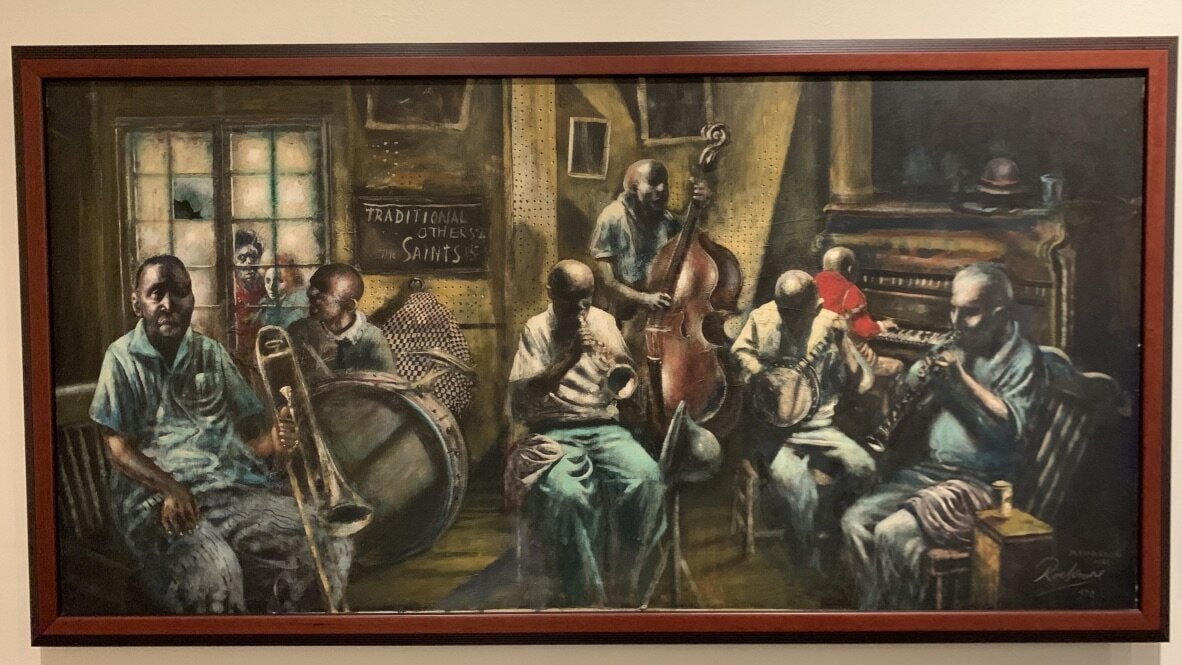New Orleans Jazz 2019
About the Program
New Orleans represents a unique locus for the history of African-American music, offering a contemporary window into the many facets of jazz and its impact on the global music scene. During this week-long immersive program, students explored the musical and social history of the region through informal and formal performance venues, museums, locations of historical significance for the development of jazz, and context for complex social histories and narratives of misappropriation and marginalization. This program included tours of slave plantations and museums that identify current issues and racial complexities in present-day New Orleans. Reflective discussion included an exploration of power dynamics in musical classification, dissemination, and economics, as well as corollary histories of slavery, resistance, and the impact of indigenous and displaced religious practices in the broader context of the region’s cultural development.
Program Itinerary
Day 1: UWC-USA => Lindale TX
Great American Road Trip Enculturation
Cows.
Day 2: TX => NOLA
Afternoon: Arrival
Evening Option: Local Choro Show at Zeitgeist
Night Option: Hot 8 Brass Band at The Howlin’ Wolf
Day 3: NOLA
Early Morning Option: Beignets
Morning: French Quarter Exploration and French Market
Afternoon: French Quarter Exploration
Evening: Dinner at Jacques Imo’s
Day 4: NOLA
Early Morning: French Quarter Exploration Option
Morning: New Orleans Jazz Museum
Afternoon: Congo Square and Louis Armstrong Park
Evening: Preservation Hall Jazz Band
Day 5: NOLA
Morning: Swamp Tour Option
Morning: Voodoo Tour Option
Lunch: Po Boys or Pho
Afternoon: French Quarter Exploration
Evening: NOLA Cooking Lesson -- Gumbo
Night: Snug Harbor Jazz Band with Delfaeyo Marsalis
Day 6: NOLA => Houston
Morning: Whitney Plantation Tour
Afternoon: Travel
Day 7: Houston => Austin
Morning: Houston
Afternoon and Evening: Austin, Texas BBQ and Capitol Building
Day 8: Austin => UWC-USA
In Transit
More cows.
Questions for Student Reflection
Southern USA Culture: How do aspects of US-American culture manifest in the towns and cities we traveled through? What regional tendencies became apparent? How do these areas communicate their values? What conflicts were evident?
Race and Gender: How does contemporary New Orleans reflect its unique racial and cultural history? How are ideals of racial and gender equality represented in the preservation ethos of an artistic tradition steeped in intersectional challenges throughout its history and development?
Ethical Tourism: What does it mean to dedicate entire performance venues to tourism? How does the concept of preservation play into this? Which aspects of the tourist experience are ethically suspect? As a city in recovery, how does the tourism industry and the French Quarter preservation ethic help and/or harm efforts to rebuild?
Tourist Culture and Local Culture: How does the tourist musical scene differ from the local-for-local scene? How much music is underground? How far does jazz reach outside of tourism? To what degree is jazz still a living genre in the way that the city advertises?
Travel and Sustainability: For students who might be inclined towards environmental work, or benefited by exposure, does it mean something to drive through 600 miles of oil fields across Texas and Louisiana? Does that exposure have intrinsic value? Is its scope so discouraging as to be rendered irrelevant?

